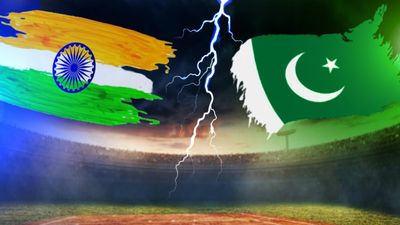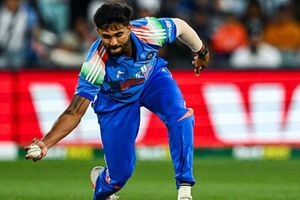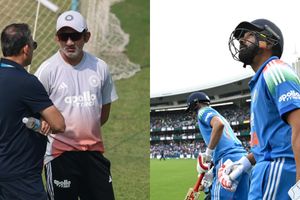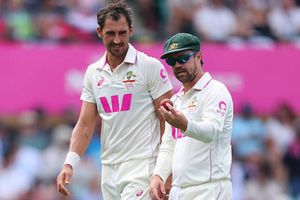The cricketing rivalry between India and Pakistan has been deeply influenced by the ongoing political tensions and security concerns between the two countries. Each match between these teams is marked by intense emotions and high expectations, but the challenges arising from their complex relationship have often disrupted tournament schedules and arrangements. Throughout the years, numerous significant matches have experienced controversies, venue changes, and even cancellations, highlighting how external factors can impact the game of cricket, especially where a lot other nations are participating in a tournament along with India and Pakistan. Let's take you through the instances where political relations between the neighbouring nations have directly impacted cricketing events, showcasing the intricate interplay between sport and diplomacy in the region.
ALSO READ: 'Someone like Cheteshwar Pujara..would have been there today': Former Indian captain makes massive remark after Rohit Sharma-led side gets all out for 461952-53: When it all started between India and Pakistan
The first tour between India and Pakistan took place when the Pakistani team, led by Abdul Qadir, came to India for a five-match Test series in 1952. This series marked Pakistan's first Test match in cricket history post independence, starting on October 16. In the first Test held in Delhi, India emerged victorious by an innings and 70 runs. However, Pakistan achieved a significant milestone in the second Test in Lucknow, securing their first-ever Test win by defeating India by an innings and 43 runs. The third match, played in Bombay, saw India claim victory by 10 wickets. The subsequent Tests in Madras and Calcutta ended in draws, allowing India to win the series 2-1. In the years that followed, Pakistan hosted India for a similar five-match Test series in 1954-55, and India hosted Pakistan in 1960-61. Interestingly, all ten Tests in these two tours ended in draws.
1962-1977: The 16-Year hiatus in India-Pakistan cricket
The political tensions between India and Pakistan, culminating in the wars of 1962, 1965, and 1971, led to a significant hiatus in cricket relations between the two nations. For nearly 17 years, cricket ties were severed, marking the longest interruption in the bilateral series. It wasn't until 1978 that the cricketing ties were restored when the Indian cricket team toured Pakistan. Captained by Bishan Singh Bedi, the Indian team faced a three-match series against a Pakistan team led by Mushtaq Mohammad. Despite the renewed cricketing ties, the Indian team suffered a 1-2 series defeat, with the series spanning from September 27th to November 19th.
1984: India's abrupt return from Pakistan in 1984
The Indian cricket team embarked on a tour of Pakistan from October 14th to November 10th, 1984. The series was scheduled for three Test matches. The first two Tests ended in draws. However, the third Test, being played at the Gaddafi Stadium in Lahore, was abruptly halted and the Indian team was forced to return home. This unexpected turn of events was triggered by the tragic assassination of India's then Prime Minister, Indira Gandhi. Upon receiving the news, the Indian team was immediately recalled to their homeland.
1990-1991: Pakistan's Boycott of the 1990-91 Asia Cup
The fourth edition of the Asia Cup was hosted by India between December 25, 1990, and January 4, 1991. However, due to escalating political tensions between India and Pakistan, the Pakistani cricket team decided to withdraw from the tournament. Consequently, the Asia Cup was contested among India, Sri Lanka, and Bangladesh. India emerged victorious in this edition.
1991: Cancellation of the 1991 India-Pakistan Test Series
Pakistan was scheduled to tour India in 1991 for a five-match Test series. However, due to the escalating tensions over the Kashmir dispute, the tour was abruptly canceled. The ongoing political differences between the two nations led to the unfortunate decision to postpone the cricketing ties.
1991: Shiv Sena's disruption of the 1991 India-Pakistan Series
In 1991, Pakistan, led by their charismatic captain Imran Khan, was scheduled to tour India for a five-match One Day International (ODI) series. However, this tour was abruptly canceled due to a significant disruption caused by the Shiv Sena party. Prior to the start of the series, Shiv Sena activists vandalized the pitch at the iconic Wankhede Stadium in Mumbai. This act of sabotage, coupled with widespread protests and opposition to the tour, forced the authorities to call off the entire series.
1993: Pakistan's Withdrawal from the 1993 Hero Cup
The Hero Cup, a cricket tournament scheduled to take place from November 7th to 27th, was set to feature six participating nations. However, just four days before the tournament was to commence, Pakistan withdrew due to the tense political relations between India and Pakistan. Despite this setback, the tournament proceeded with India, Sri Lanka, the West Indies, South Africa, and Zimbabwe competing. India eventually emerged victorious, defeating the West Indies in the final.
1994: Pakistan's withdrawal led to India inviting Sri Lanka
In 1993-94, the Pakistan cricket team was scheduled to tour India for a three-match Test series. However, citing security concerns, Pakistan withdrew from the tour. Following Pakistan's withdrawal, the Sri Lanka was invited to tour India. Notably, India went on to clinch that series.
1996-1999: India's Refusal to Continue the Sahara Cup Post Kargil War
The Sahara Cup was a highly anticipated cricket tournament between India and Pakistan, traditionally held at neutral venues. However, in 1999, following the Kargil War, India decided to discontinue this series. The Kargil War, a military conflict between India and Pakistan, significantly strained bilateral relations. Given the tense political climate, India deemed it inappropriate to continue a cricketing engagement with Pakistan. The decision to halt the Sahara Cup was seen as a direct consequence of the war and the hostility between the two nations.
2009: This is how things changed between India and Pakistan post 2008 Mumbai terror attack
In 2009, the Indian cricket team was scheduled to tour Pakistan for a series comprising three Test matches and five One Day Internationals. However, in the wake of the devastating 26/11 Mumbai terrorist attacks in 2008, India decided to call off the tour. The Mumbai attacks, which were carried out by Pakistani terrorists, significantly strained bilateral relations between India and Pakistan. Given the heightened tensions and security concerns, India deemed it imprudent to send its cricket team to Pakistan. This decision marked a significant shift in Indo-Pak cricket relations and underscored the deep-rooted animosity between the two nations.
2018: Shifting the venue of the 2018 Asia Cup due to Political tensions
The 2018 Asia Cup was initially scheduled to be held in India from September 15 to 28. However, due to the strained political relations between India and Pakistan, the venue was shifted to the United Arab Emirates. India eventually emerged victorious, clinching their seventh Asia Cup title by defeating Bangladesh in the final. Apart from India and Pakistan, Bangladesh, Sri Lanka, Afghanistan, and Hong Kong participated in the tournament. The decision to change the venue was primarily driven by the ongoing geopolitical tensions between India and Pakistan, which made it difficult to host a multi-nation tournament involving both countries on Indian soil.
Asia Cup 2023: A hybrid model due to venue disputes
The 2023 Asia Cup was initially scheduled to be hosted entirely in Pakistan. However, due to India's refusal to tour Pakistan, a hybrid model was adopted for the tournament. Played between August 30 and September 17, the Indian team played all their matches in Sri Lanka. In a thrilling final, India defeated Sri Lanka to claim their eighth Asia Cup title.
Uncertainty looms around India's visit to Pakistan for Champions Trophy 2025
Sports Tak was the first to report that the ICC was considering three potential options for the upcoming Champions Trophy 2025. One of these options involved shifting the entire tournament out of Pakistan.
Here are the three options which can be exercised for Champions Trophy 2025:
ADVERTISEMENT










